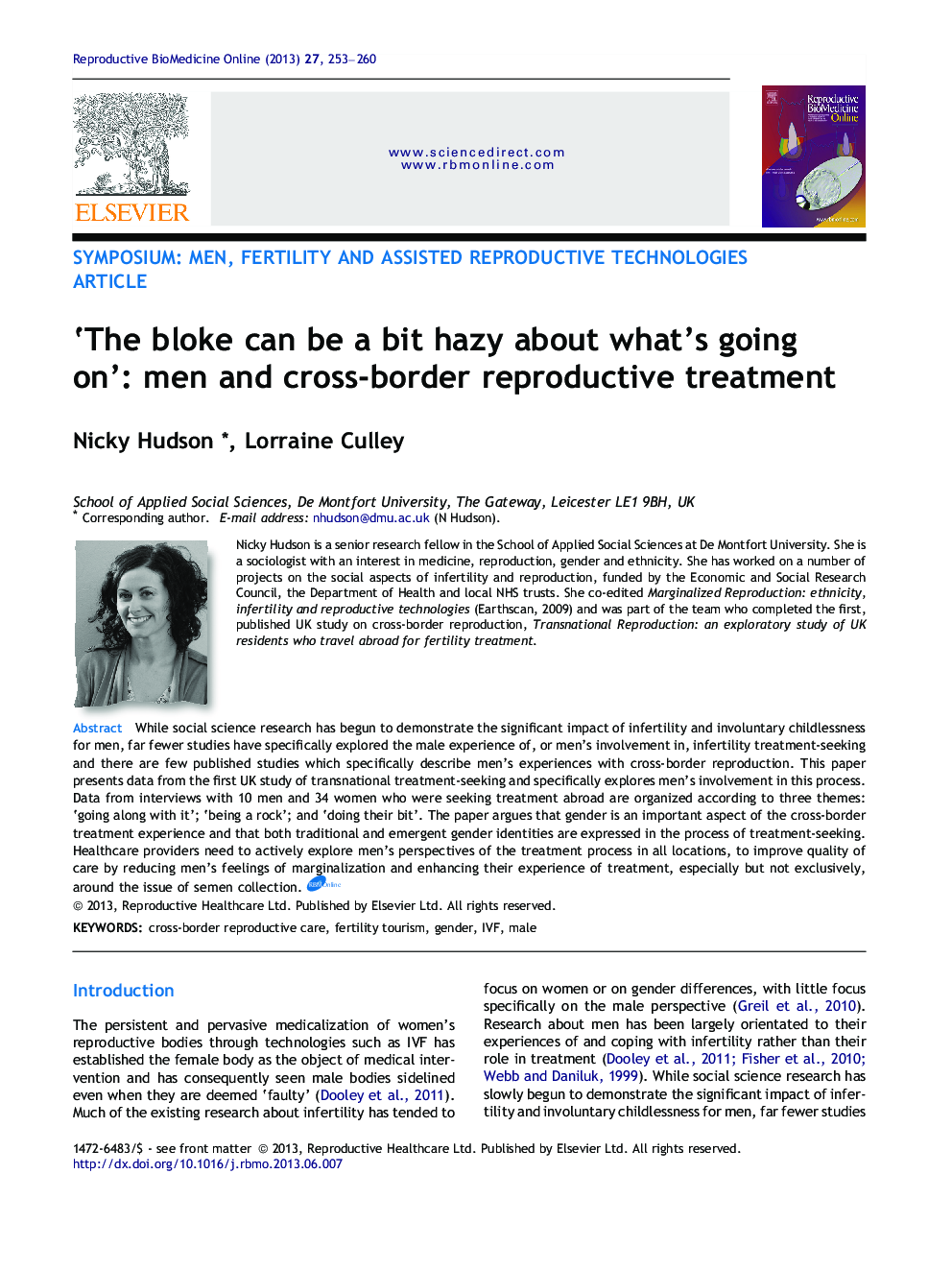| Article ID | Journal | Published Year | Pages | File Type |
|---|---|---|---|---|
| 3970567 | Reproductive BioMedicine Online | 2013 | 8 Pages |
While social science research has begun to demonstrate the significant impact of infertility and involuntary childlessness for men, far fewer studies have specifically explored the male experience of, or men’s involvement in, infertility treatment-seeking and there are few published studies which specifically describe men’s experiences with cross-border reproduction. This paper presents data from the first UK study of transnational treatment-seeking and specifically explores men’s involvement in this process. Data from interviews with 10 men and 34 women who were seeking treatment abroad are organized according to three themes: ‘going along with it’; ‘being a rock’; and ‘doing their bit’. The paper argues that gender is an important aspect of the cross-border treatment experience and that both traditional and emergent gender identities are expressed in the process of treatment-seeking. Healthcare providers need to actively explore men’s perspectives of the treatment process in all locations, to improve quality of care by reducing men’s feelings of marginalization and enhancing their experience of treatment, especially but not exclusively, around the issue of semen collection.There has been little research which has tried to understand more about men’s experiences and involvement in seeking medical help for infertility. There are no published studies which explore the experience of travelling abroad for infertility treatment from the male perspective. In this paper, we present findings from the first UK study of cross-border treatment-seeking and specifically explore men’s involvement in this process. We present findings from interviews with 10 men and 34 women who were seeking treatment in countries outside the UK. These findings are organised according to three themes drawn from the interviews with the men and women: ‘going along with it’; ‘being a rock’; and ‘doing their bit’. This research shows that, as is often the case with treatment-seeking in their home country, men are less likely to get involved in the planning and organization of treatment, but take responsibility for supporting their female partner. Men found some aspects of the treatment process, especially giving a semen sample, particularly difficult. Infertility practitioners in the UK and in other countries need to take account of gender differences and include a consideration of men’s experiences in a more sensitive and proactive way.
